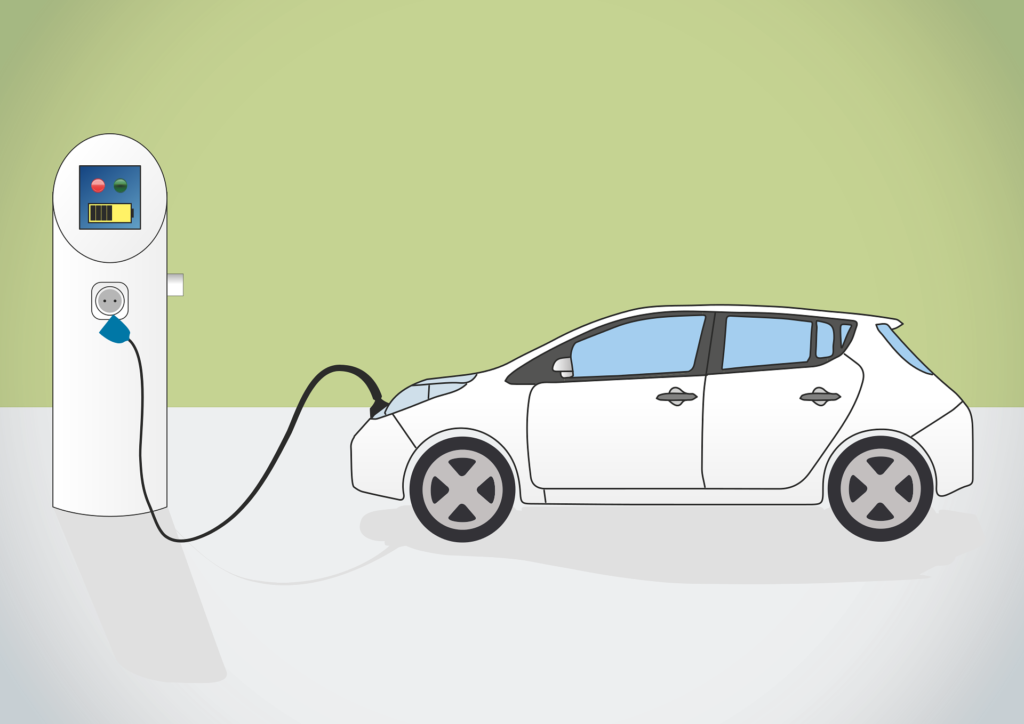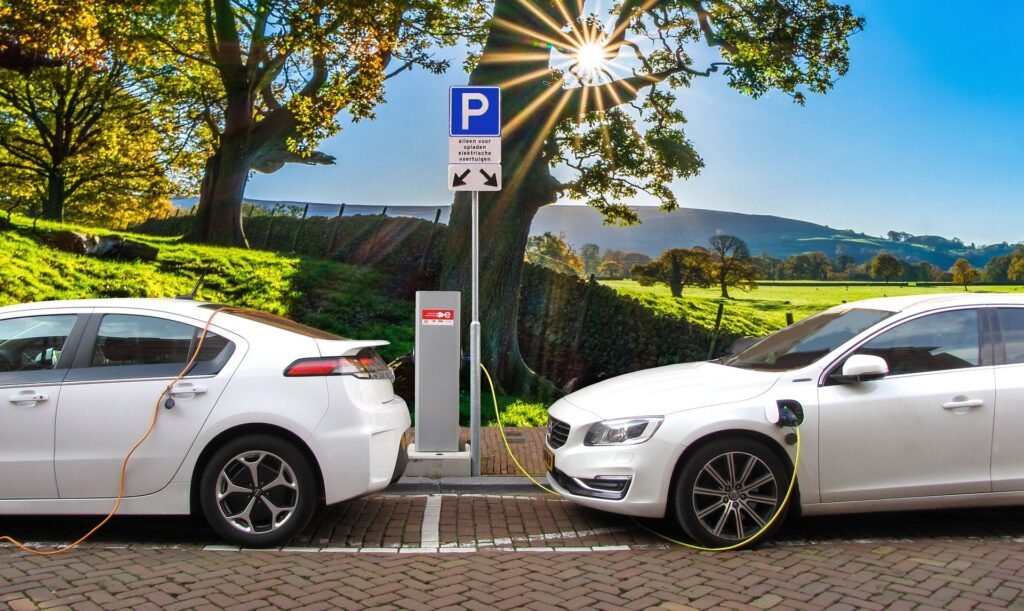Key Takeaways
- Understanding the growing demand for EV charging points in rental properties
- Legal considerations and obligations for UK landlords
- Cost-effective solutions and funding options for installing EV charging infrastructure
- Navigating tenant negotiations and lease agreements
- Potential benefits and challenges of offering EV charging facilities
- Future-proofing your property in the age of electric vehicles
As the UK moves towards a greener future, electric vehicles (EVs) are becoming increasingly popular. This shift is having a significant impact on the rental property market, with more tenants looking for homes equipped with EV charging points. As a landlord, you might find yourself facing requests from tenants to install these charging facilities. But how do you handle such requests? This comprehensive guide will walk you through the process, helping you make informed decisions that benefit both you and your tenants.
Understanding the EV Revolution
The Growing Demand for Electric Vehicles
The UK government has set ambitious targets to phase out petrol and diesel vehicles by 2030. This push towards sustainable transportation has led to a surge in EV ownership. According to the Society of Motor Manufacturers and Traders (SMMT), electric vehicle registrations in the UK have grown exponentially in recent years[^1].
Impact on the Rental Market
As more people switch to electric vehicles, the demand for properties with EV charging facilities is on the rise. Tenants are increasingly viewing charging points as an essential amenity, similar to how they view internet connectivity or parking spaces. This shift in tenant preferences is reshaping the rental landscape, and savvy landlords are taking note.
Future-Proofing Your Property
By considering EV charging point installations, you’re not just meeting current tenant demands – you’re future-proofing your property. Properties equipped with charging points are likely to become more attractive to potential tenants and could potentially command higher rents in the future.

Legal Considerations for UK Landlords
Current Regulations
As of 2024, there’s no legal requirement for landlords to install EV charging points in existing properties. However, new build homes and buildings undergoing major renovations are required to have EV charging points installed[^2]. It’s crucial to stay informed about potential changes in legislation that may affect your obligations as a landlord.
Tenant Rights and Landlord Obligations
While you’re not obligated to install charging points, it’s important to consider tenant requests fairly. The Tenant Fees Act 2019 prohibits landlords from unreasonably refusing permission for tenants to make energy efficiency improvements[^3]. Although this doesn’t explicitly cover EV charging points, it sets a precedent for considering tenant requests that could improve the property’s energy efficiency.
Planning Permission and Building Regulations
Before installing an EV charging point, you’ll need to check if you require planning permission. In many cases, installing a charging point is considered ‘permitted development’, but it’s always best to check with your local council. You’ll also need to ensure the installation complies with relevant building regulations.
Assessing the Costs and Benefits
Installation Costs
The cost of installing an EV charging point can vary depending on factors such as the type of charger, the location, and any necessary electrical upgrades. On average, you can expect to pay between £500 and £1,500 for a standard home charging unit[^4].
| Charger Type | Average Cost Range |
|---|---|
| 3.6kW | £250 – £500 |
| 7kW | £450 – £800 |
| 22kW | £800 – £1,500 |
Potential Benefits
While there’s an upfront cost, installing EV charging points can offer several benefits:
- Increased property value
- Higher rental potential
- Attracting long-term tenants
- Positive environmental impact
Government Grants and Incentives
The UK government offers various schemes to support the installation of EV charging points. The Electric Vehicle Homecharge Scheme (EVHS) provides funding of up to 75% towards the cost of installing a charging point[^5]. While this scheme is primarily for homeowners, some local authorities offer grants for landlords.
Navigating Tenant Negotiations
Open Communication
When a tenant approaches you with a request for an EV charging point, it’s essential to maintain open and clear communication. Listen to their needs and express your own concerns or questions. This dialogue can help you find a mutually beneficial solution.
Lease Agreement Considerations
If you decide to proceed with the installation, you’ll need to update your lease agreement. Consider including clauses that address:
- Who is responsible for maintenance and repairs
- How electricity costs will be handled
- Any restrictions on usage or access
Cost-Sharing Options
There are several ways you could approach the costs associated with EV charging point installation:
- Landlord covers all costs and potentially increases rent
- Tenant covers installation costs, with the charging point becoming property of the landlord at the end of the tenancy
- Costs are shared between landlord and tenant
| Cost-Sharing Model | Pros | Cons |
|---|---|---|
| Landlord Covers All | – Attractive to tenants – Full control over installation | – Higher upfront cost – Longer ROI timeframe |
| Tenant Covers All | – No cost to landlord – Tenant investment in property | – Potential quality control issues – Possible disputes at end of tenancy |
| Shared Costs | – Balanced approach – Shared commitment | – Requires clear agreement – Potential for disagreements |

Choosing the Right Charging Solution
Types of EV Chargers
There are three main types of EV chargers:
- Slow chargers (3.6kW): Suitable for overnight charging
- Fast chargers (7-22kW): Can fully charge most EVs in 3-4 hours
- Rapid chargers (50kW+): Can charge to 80% in around 30 minutes
For most residential properties, a 7kW fast charger is typically sufficient.
Smart Charging Options
Consider installing a smart charger, which can offer benefits such as:
- Remote monitoring and control
- Scheduling charging during off-peak hours
- Integration with solar panels or other renewable energy sources
Future-Proofing Your Installation
When installing a charging point, think about future needs. Consider:
- Installing multiple charging points if you have multiple parking spaces
- Choosing a charger that can be upgraded in the future
- Ensuring your electrical supply can handle potential increases in demand
Managing Electricity Costs and Usage
Separate Metering
To accurately track electricity usage for EV charging, consider installing a separate meter. This allows you to bill tenants precisely for their usage without affecting the overall property’s energy costs.
Time-of-Use Tariffs
Encourage your tenants to switch to a time-of-use tariff, which offers cheaper electricity rates during off-peak hours. This can significantly reduce the cost of charging an EV overnight.
Renewable Energy Integration
If your property has solar panels or other renewable energy sources, you could explore integrating these with the EV charging point. This can reduce electricity costs and increase the eco-friendliness of the charging solution.
Maintaining EV Charging Infrastructure
Regular Inspections
Like any electrical installation, EV charging points require regular inspections and maintenance. Schedule annual checks to ensure the charging point remains safe and efficient.
Troubleshooting Common Issues
Familiarise yourself with common EV charging issues, such as:
- Charging cable faults
- Communication errors between the car and charger
- Electrical trip switches activating
Having a basic understanding of these issues can help you respond quickly to tenant concerns.
Professional Maintenance Services
Consider partnering with a professional EV charging point maintenance service. They can provide regular check-ups and swift repairs when needed.
Addressing Safety Concerns
Electrical Safety
Ensure that the EV charging point installation is carried out by a qualified electrician. The installation should comply with the latest IET Wiring Regulations and the Electric Vehicle Charging Equipment Installation Regulations[^6].
Insurance Considerations
Inform your insurance provider about the EV charging point installation. You may need to update your policy to ensure adequate coverage.
Tenant Education
Provide your tenants with clear instructions on how to use the charging point safely. Consider creating a simple guide that covers basic operation, safety precautions, and what to do in case of issues.
The Future of EV Charging in Rental Properties
Emerging Technologies
Keep an eye on emerging technologies in the EV charging space. Innovations like wireless charging pads and ultra-fast charging could reshape how we approach EV charging in residential properties.
Potential Regulatory Changes
As the UK moves closer to its 2030 target for phasing out new petrol and diesel vehicles, we may see new regulations affecting landlords. Stay informed about potential changes that could impact your obligations regarding EV charging facilities.
Market Trends
Monitor the rental market in your area. As EV adoption increases, properties with charging facilities may become increasingly desirable, potentially commanding higher rents or attracting a wider pool of tenants.
Conclusion
Handling tenant requests for EV charging points is becoming an increasingly important skill for UK landlords. By understanding the legal landscape, assessing costs and benefits, and navigating tenant negotiations effectively, you can turn this challenge into an opportunity. Installing EV charging facilities can future-proof your property, attract quality tenants, and potentially increase your rental income.
Remember, the key to success lies in open communication with your tenants, careful planning, and staying informed about the latest developments in EV technology and regulations. As the UK moves towards a greener future, landlords who adapt to these changes will be well-positioned to thrive in the evolving rental market.
Frequently Asked Questions
- Am I legally required to install EV charging points for my tenants?
Currently, there’s no legal requirement for landlords to install EV charging points in existing properties. However, it’s important to consider tenant requests fairly. - How much does it typically cost to install an EV charging point?
The cost can range from £500 to £1,500, depending on the type of charger and installation requirements. - Are there any government grants available for landlords installing EV charging points?
While the main government scheme (EVHS) is primarily for homeowners, some local authorities offer grants for landlords. It’s worth checking with your local council. - Will installing an EV charging point increase my property value?
While it’s difficult to quantify exactly, properties with EV charging facilities are becoming increasingly desirable, which could positively impact property value. - How do I handle the electricity costs for EV charging?
Options include installing a separate meter, increasing rent to cover costs, or having the tenant pay for their usage directly. - What type of EV charger is best for a rental property?
A 7kW fast charger is typically sufficient for most residential properties. - Do I need planning permission to install an EV charging point?
In many cases, it’s considered ‘permitted development’, but it’s always best to check with your local council. - How often does an EV charging point need maintenance?
Annual inspections are recommended to ensure safety and efficiency. - Can I restrict which tenants use the EV charging point?
This should be clearly outlined in your tenancy agreement if you choose to restrict usage. - What if my property doesn’t have off-street parking?
There are on-street charging solutions available, but these typically require coordination with local authorities.




